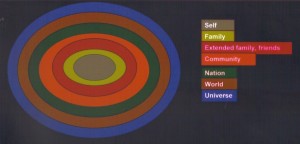Whilst attending the intermediate course of paragliding many years ago, I remember taking a short flight from the top of a 600 feet tall cliff and truly loving it. I recall marveling at the effortlessness of the entire 45 seconds flight, before gravity took hold, and wondering how some of the experienced paragliders managed to stay up in the air for hours. As I learnt, it was their ability, like the migratory birds, to find progressive air thermals that allowed them to stay up and even travel long distances, of sometimes up to a thousand kilometers. Were those long flights enervating for them? Never, they were always effortless and exhilarating, as they soared, in complete harmony with nature. Comparing that scenario to the way we live our lives, I often wonder why there is so much struggle to our existence. There appears to be this constant underlying stress all around us and the innumerable choices that we are surrounded with – of, products, services, careers, gadgets, leisure and so on – instead of empowering us, leave us feeling deprived. Like the migratory birds, wouldn’t it be wonderful if we could find such thermals that make our lives more effortless, balanced, and peaceful? Those thermals could sweep us away from our daily dilemmas to a life where making choices was much easier, where we experienced minimal effort to move forward, and where we were fully supported by nature in all our pursuits.
The key to this I believe lies in gaining clarity about the purpose of our own existence. Why are we here and what are are we aiming to do? I do believe each one of us on earth is hugely gifted and has a special purpose – but do we take the time to discover it in ourselves; or are we just on a treadmill of activity going almost nowhere. What do you value, what’s most important to you? Do you want to be more successful or do you want to make a more significant contribution? Do you want…












